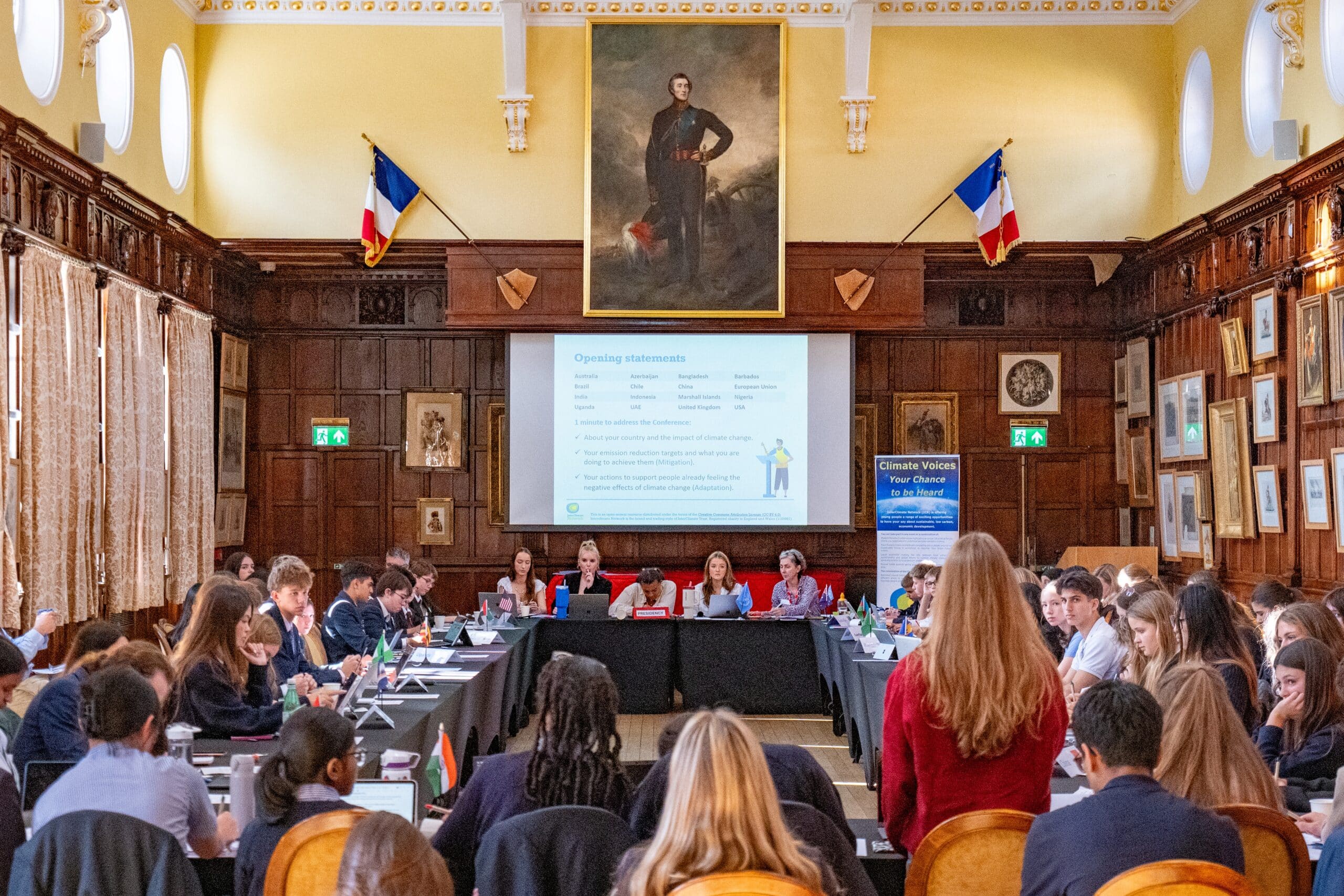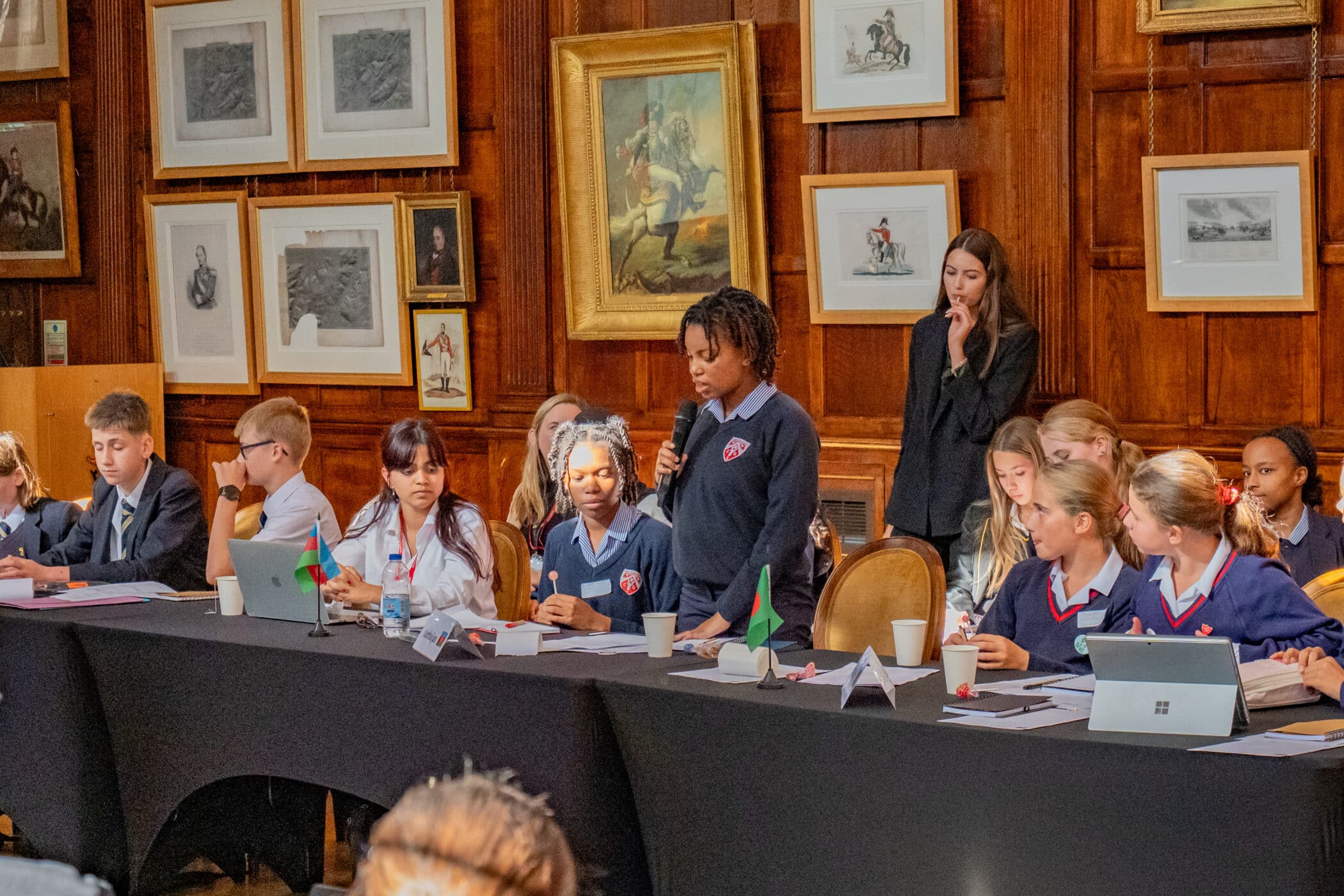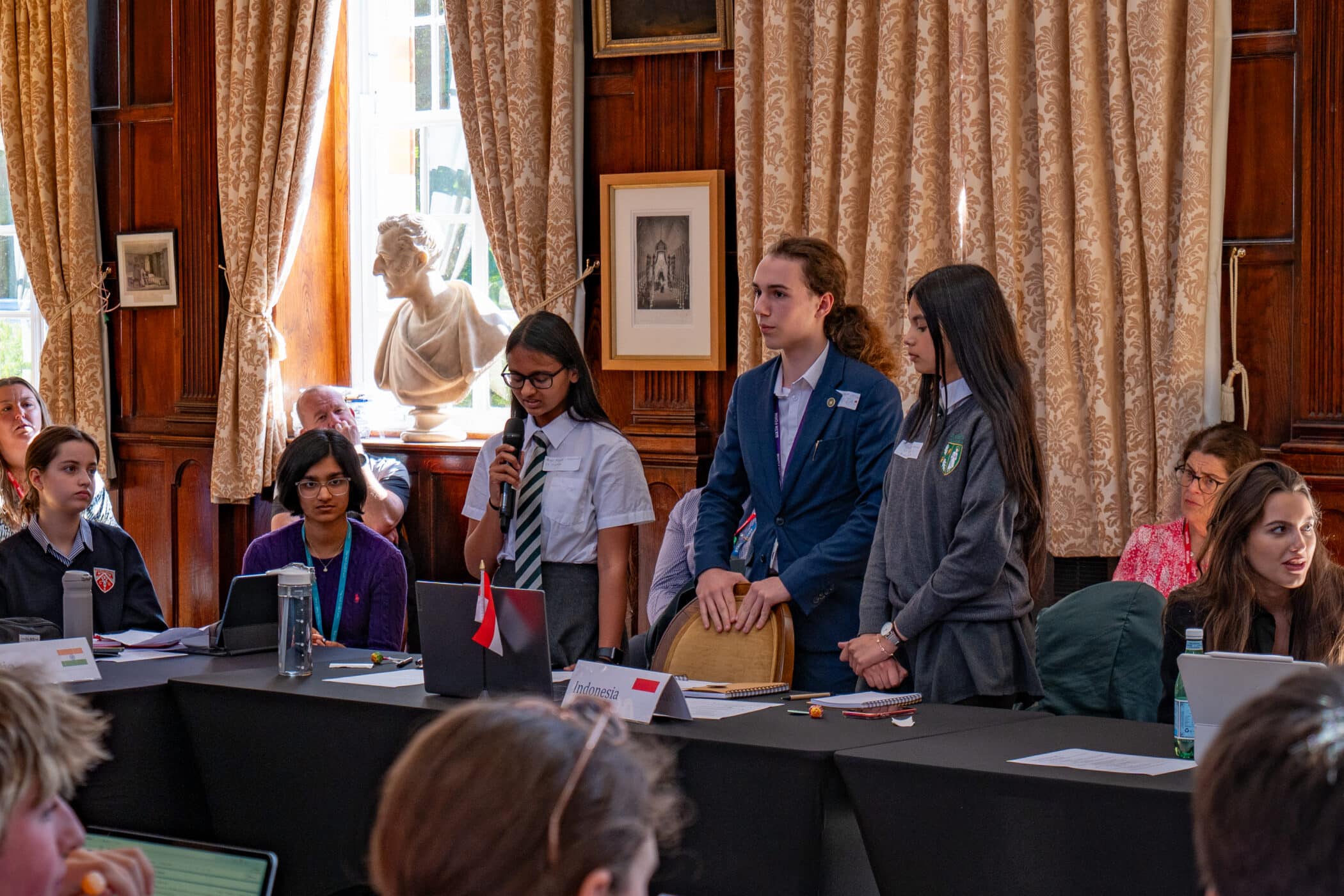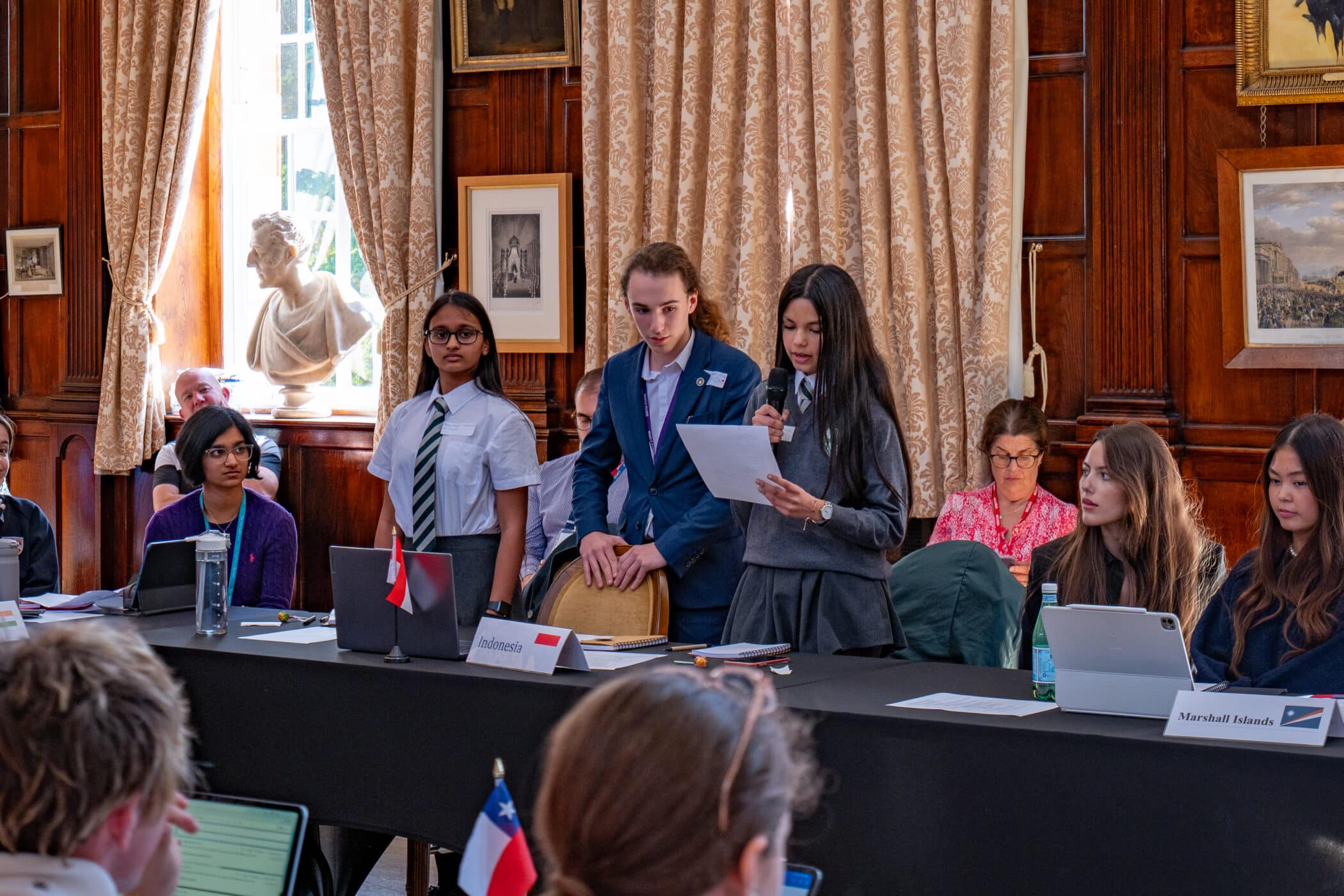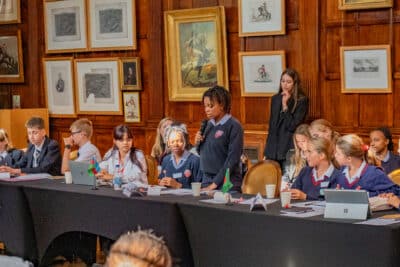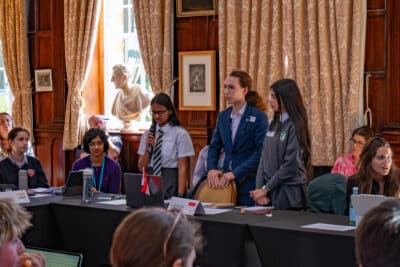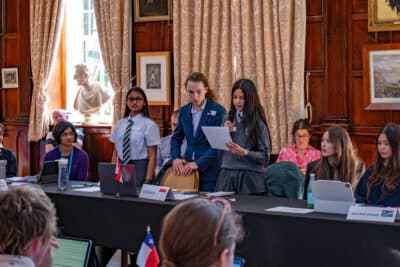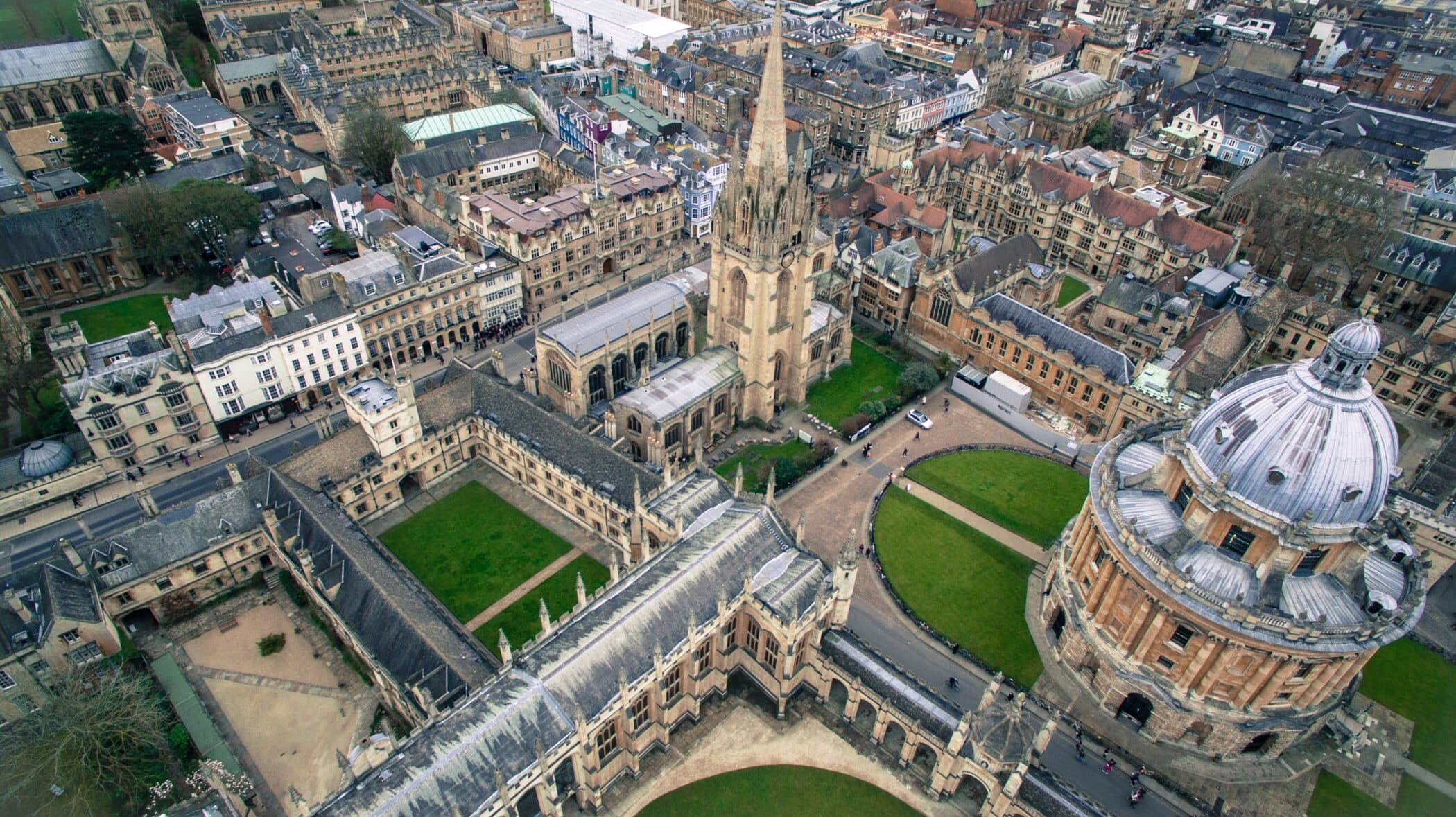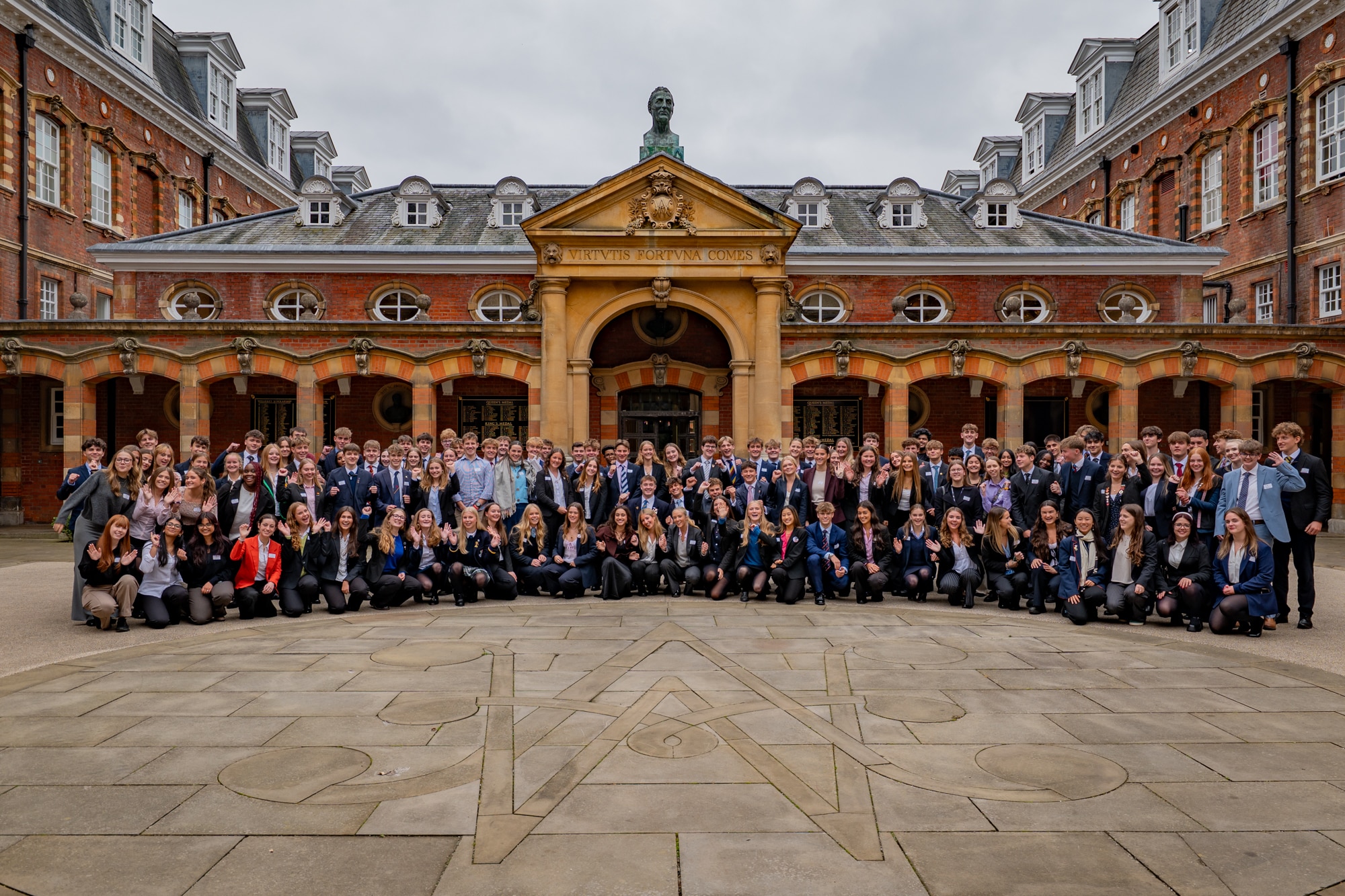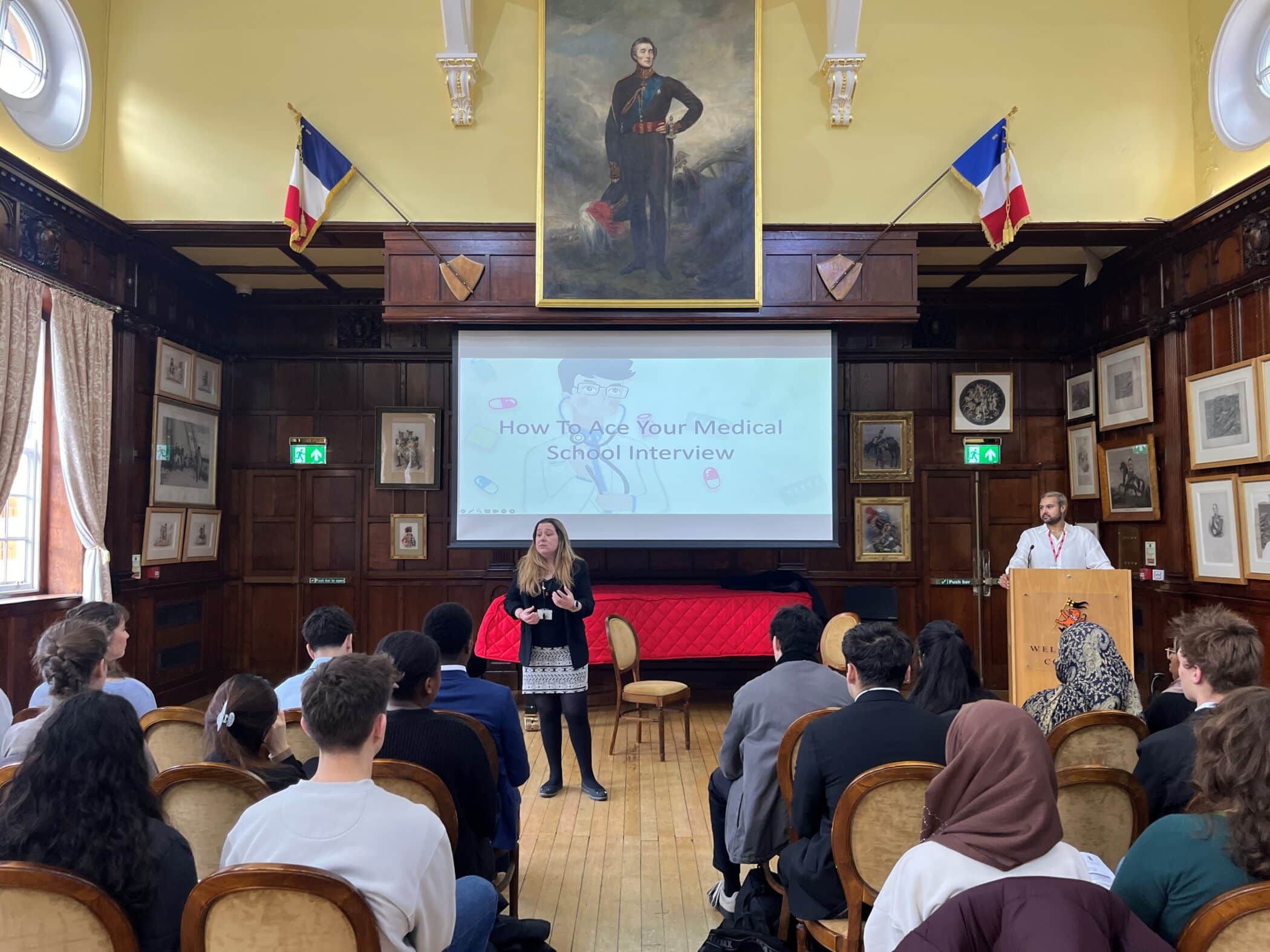
Could Uganda and Indonesia make better contributions to climate change – and could more developed countries help them too?
That was the question that pupils from St Crispin’s School, Wokingham, had to think about as part of a mock conference on climate change at Wellington College.
The mock COP30 event brought together students from local schools including 46 from Charters School, Edgbarrow School, Garth Hill College, St Crispin’s School, and The Holt School, which are all part of the Wellington College Student Alliance.
Groups from each school represented different countries including Australia, Bangladesh, Brazil, China, the EU, India, Indonesia, Nigeria, Uganda, the UAE, the UK and the USA, debating key global themes such as energy transition, climate finance, nature-based solutions, cities and oceans.
Students worked collaboratively to propose practical solutions including debt relief, loss and damage funding, renewable energy investment, forest protection, urban resilience and marine conservation. Their discussions will be reflected in a final student declaration capturing negotiation outcomes and policy proposals.
Afterwards, a participant said: “Taking part in Mock COP30 changed how I see climate action. It’s not just about making speeches but about building trust, seeking compromise and bridging inequalities.”
Mock COP30 involved students from Year 8 to Year 13, supported by Model United Nations leaders and Sustainability Committee members who mentored younger pupils. This structure encouraged collaboration and empathy across year groups.
Ana Romero, Head of Sustainability and Global Climate Education Advisor, said: “Mock COP30 has reaffirmed our belief that climate education must be more than theory. It must empower students to negotiate, to empathise and to act. Seeing our students step into the roles of climate diplomats reminds us that the next generation already holds the ambition, insight and courage to shape global solutions.”




